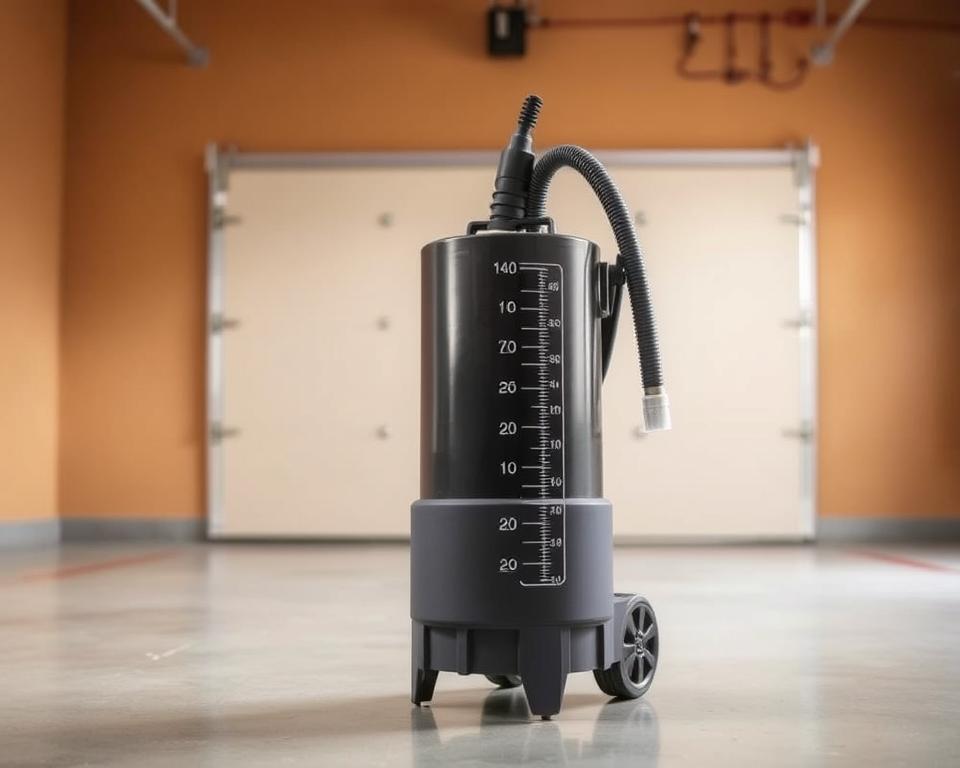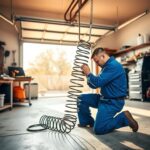RV Sewage Pump: Critical Service Guidelines
Is your RV’s black water pump really ready for the road, or might it bring about camping woes? Caring for your motorhome’s waste system in excellent order is essential. It wards off foul odors, back-ups, and expensive damage. Here are important advice to ensure your sewage pump runs without a hitch, keeping your travels peaceful.
Understanding Your RV’s Plumbing System
The RV plumbing system is fundamental for any successful road trip. It separates into two main parts: the black water system and the gray water system – RV pumping service. The black water system gathers waste from the toilet, and the gray water system processes wastewater from sinks and showers.
The systems employ drain lines that feed into different tanks, designed for streamlined waste management. Each tank has a vent to block gas from building up, keeping the operation is safe and pleasant. Proper waste management in an RV is vital to prevent leaks or bad odors. By understanding both black and gray water tanks, RV owners can upkeep and manage waste better.
Understanding how your RV’s plumbing works reveals issues in advance. Routine maintenance makes trips smoother for everyone. Keeping on top with your RV’s plumbing system assures reliability during your travels.
Kinds of RV Water Tanks
Owning RVs involves recognizing the different tanks. Each one is vital to your RV’s system, demanding regular upkeep.
The fresh water tank stores drinking water. It’s necessary for a pleasant RV experience.
The gray water tank collects sink, shower, and other non-Septic wastewater. Overseeing this tank keeps your RV hygienic while traveling. The black water tank, on the other hand, contains toilet waste. It needs frequent emptying and meticulous maintenance to avoid issues.
By recognizing the fresh, gray, and black water tanks, RV owners can effectively manage their systems. This planning and regular maintenance secure smooth functionality of the waste management system.
Operation of Black Water Tanks
The working of the black water tank is crucial in RV waste management. It collects waste from the toilet via a gravity-fed system. Upon flushing, waste and water are channeled to the tank, to be stored until removal is necessary. It’s important to keep water levels optimized in the toilet to stop solid waste buildup.
Knowing how RV waste tanks function can avoid clogs and odors. Without proper care, solid waste hardens, creating blockages and emptying difficulties. Proper tank flushing techniques are essential to preventing these issues, securing smooth functionality.
Frequent inspection of tank mechanics is advised for RV owners. This includes watching flushing methods and ensuring adequate water flow. Knowing these essentials supports efficient tank maintenance, averting expensive fixes later.

Vital Maintenance Tips for Your RV Black Water Pump
Performing regular maintenance on your RV’s black water pump is essential. First, pick RV-safe toilet paper to minimize clogs and better flow. A thorough flush can eliminate waste and cut bad smells. Consistently cleaning the tank helps prevent residue buildup, guaranteeing your RV clean and comfortable.
Carry out routine inspections to examine your pump’s condition. Search for any signs of wear or damage that could affect its function. Using specialized tank treatments, like those from All in Sanitation, can greatly boost both performance and cleanliness. Adhering to these tips can prolong your pump’s life and improve your RV’s living conditions.
Opt for RV-Specific Tissue
Keeping your RV’s black water system requires key actions. One key strategy is using RV-safe toilet paper for clog prevention. This specifically designed product dissolves quickly in water, tailored for RV sanitation systems.
RV-safe toilet paper is crucial for tank maintenance. It dissolves fast, minimizing blockages from slow-decomposing materials. This enhances waste disposal efficiency and keeps the plumbing free-flowing.
Opt for brands labeled as RV-safe when buying toilet paper. These products lessen clog risks and extend your black water tank‘s lifespan by avoiding buildup. Regular use delivers a stress-free camping experience, absent plumbing troubles.
Proper Tank Cleansing
Thoroughly flushing your black water tank is key for responsible waste management in your RV. To help waste movement, confirm the toilet bowl is filled with enough water before flushing. Many RVs are equipped with built-in tank flush systems to make the process more convenient. For RVs without this feature, attaching tank rinsers that attach to the sewer outlet offers a reliable alternative.
Proper tank flushing aids waste removal and prevents solid accumulations and bad smells. Keeping up with this process ensures your RV stays free of odors, making your travels more comfortable. A habit of regular and complete tank flushing will improve hygiene and the overall condition of your RV’s plumbing system.
Avoid Gunk through Routine Cleansing
Keeping your RV’s black water tank clean is vital for its best function. Routine cleaning washes away lingering waste inside the tank walls. This means rinsing well with water and using specific RV tank cleaners for tough deposits.
By cleaning diligently, you halt odors and cut down clog risks. A well-maintained tank makes RVing better and helps your plumbing last longer. Build tank maintenance into your routine to secure smooth travels.
Picking Suitable Additives
Selecting suitable chemicals for RV black water pump maintenance is critical for managing waste and minimizing smells. Many RV enthusiasts use enzyme-based RV holding tank treatments. These products employ good bacteria to dissolve solids and neutralize bad odors.
Keeping away from harsh chemicals is crucial to prevent damage to your plumbing. Such substances can eat away at pipes, leading to high repair bills and diminishing your RV enjoyment. Applying safe chemicals for odor control guarantees your tank and pump’s longevity.
Maintaining your RV black water tank in prime shape improves your travel experience. Using the right holding tank treatment consistently secures your system works well.
Proper Dumping Schedule
It’s crucial to empty your RV’s black water tank at the correct moment for proper dumping. Try to empty when the tank is about two-thirds full is smart. This prevents solid waste buildup, providing a smoother emptying process.
Draining at official stations is key for safe, eco-friendly waste handling. It’s important to keep an eye on the tank‘s levels closely. Permitting full capacity can cause clogs and make disposal more difficult.
Appropriate scheduling and techniques are crucial for hygienic waste management and can increase your plumbing’s life. Keeping a regular check and doing proper upkeep delivers a pleasant RV living experience.
Maintaining Toilet & Tank Seals
Reviewing seals around the toilet and tank is crucial for leak prevention. Over time, these seals might wear, leading to odors and potential harm. A comprehensive inspection will identify any wear or damage. Detecting issues early allows for quick replacement to secure a secure connection and odor-free RV.
Keeping a bit of water in the toilet bowl assists in preserving seal condition. This preventative measure is key in RV seal upkeep. It lengthens the seals’ life, avoiding leaks and foul odors.
Routine seal maintenance can prevent pricey work later. By prioritizing seal health, RV owners secure a pleasant journey.
Additional Tips for Long-Term Maintenance
Arranging professional servicing for your RV at least once a year is prudent, particularly for black water tank care. This strategy aids in early problem detection and preserves your plumbing system’s integrity.
When preparing your RV for storage, entirely clean and empty the black water tank first. Look into antifreeze to protect from damage from remaining water during cold seasons. Following this practice is vital for protecting the system, ensuring it’s ready for your next adventure.
Regular inspections and preventive actions are crucial to lengthening your sanitation system’s life. Monitoring connections, hoses, and seals guarantees smooth operations. This approach betters your RV experience, making it enjoyable all year round.
Guaranteeing your RV’s black water pump is well-maintained is vital for a stress-free camping journey. By observing the maintenance tips shared, you can maintain your black water system working efficiently. It’s essential to focus on routine washing, employing correct flushing methods, and selecting appropriate chemicals for waste management.
By meeting these maintenance requirements, you will sidestep unpleasant odors and blockages. This also increases your RV plumbing system’s durability. Proactive care of the RV black water pump means more time enjoying the outdoors, absent potential setbacks.
Don’t forget, proper upkeep is key next time you gear up for an outing. It’s not the highlight of RV ownership, yet it significantly improves your travel experience.


